At the invitation of Premier of the State Council of the People's Republic of China Li Qiang, Prime Minister Pham Minh Chinh attended the 8th Greater Mekong Subregion (GMS) Summit, the 10th Ayeyawady-Chao Phraya-Mekong Economic Cooperation Strategy Summit (ACMECS), the 11th Cambodia-Laos-Myanmar-Vietnam (CLMV) Summit and worked in China from November 5 to 8.
The working trip aims to affirm Vietnam's commitment to the GMS, ACMECS and CLMV mechanisms in particular, and cooperation in the Mekong region in general.
-------------------***-------------------
GMS is the first cooperation framework established in the Mekong Subregion in 1992 with the support of the Asian Development Bank (ADB), including member countries Vietnam, Cambodia, Laos, Myanmar, Thailand and China (with two representative provinces, Yunnan and Guangxi).
The goal of GMS is to promote and facilitate mutually beneficial economic development cooperation among GMS countries; support GMS countries to successfully implement the Millennium Development Goals, and rapidly turn the Greater Mekong Subregion into a fast-growing and prosperous region in Southeast Asia. GMS achieves this goal through the 3C criteria: Connectivity, Competitiveness, and Community.
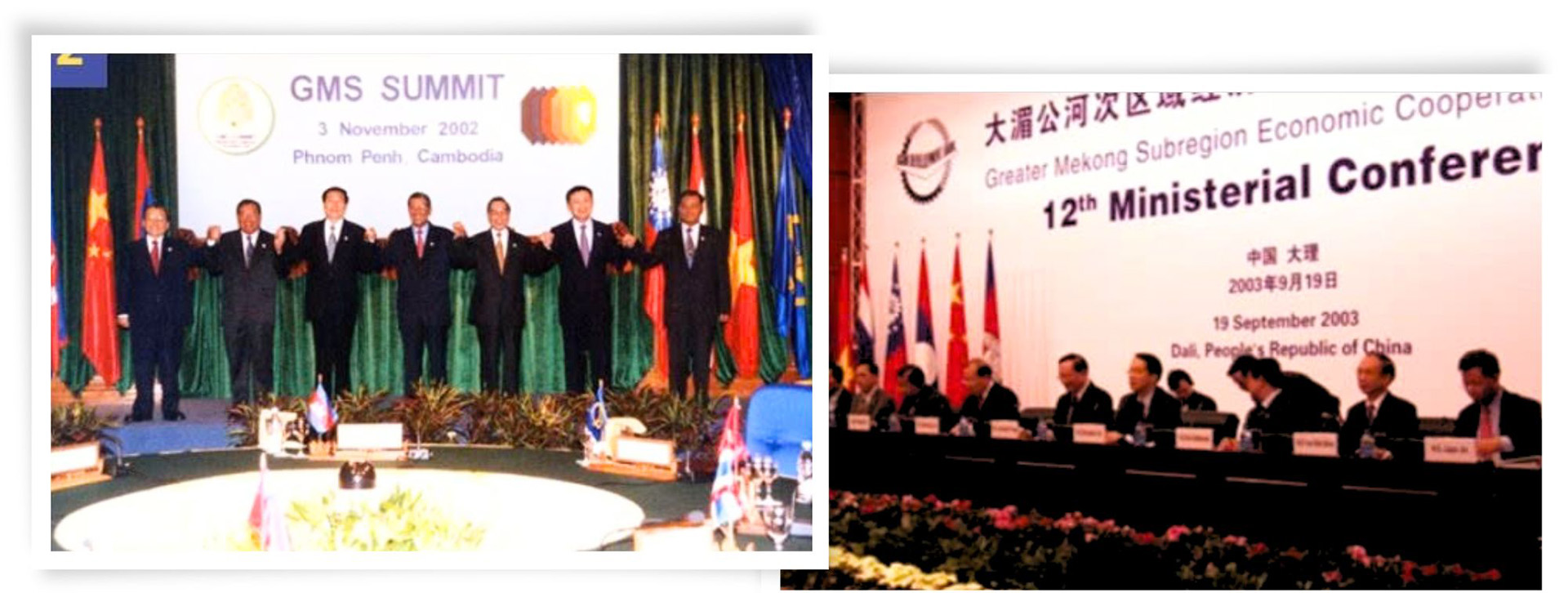
With the vision of “Developing a more integrated, prosperous, sustainable and comprehensive GMS sub-region”, GMS cooperation is based on three pillars: Community, Connectivity and Competitiveness; and focuses on areas such as: Agriculture , energy, health and human resources, tourism, information and communication technology, transportation, trade, urban development.
Over the past 30 years, GMS cooperation has continuously expanded in scale, deepened in content, and affirmed its own identity as a prestigious regional cooperation mechanism. Since the establishment of GMS, Vietnam has actively participated in many GMS cooperation initiatives, contributing ideas to build plans and strategies in the sub-region....
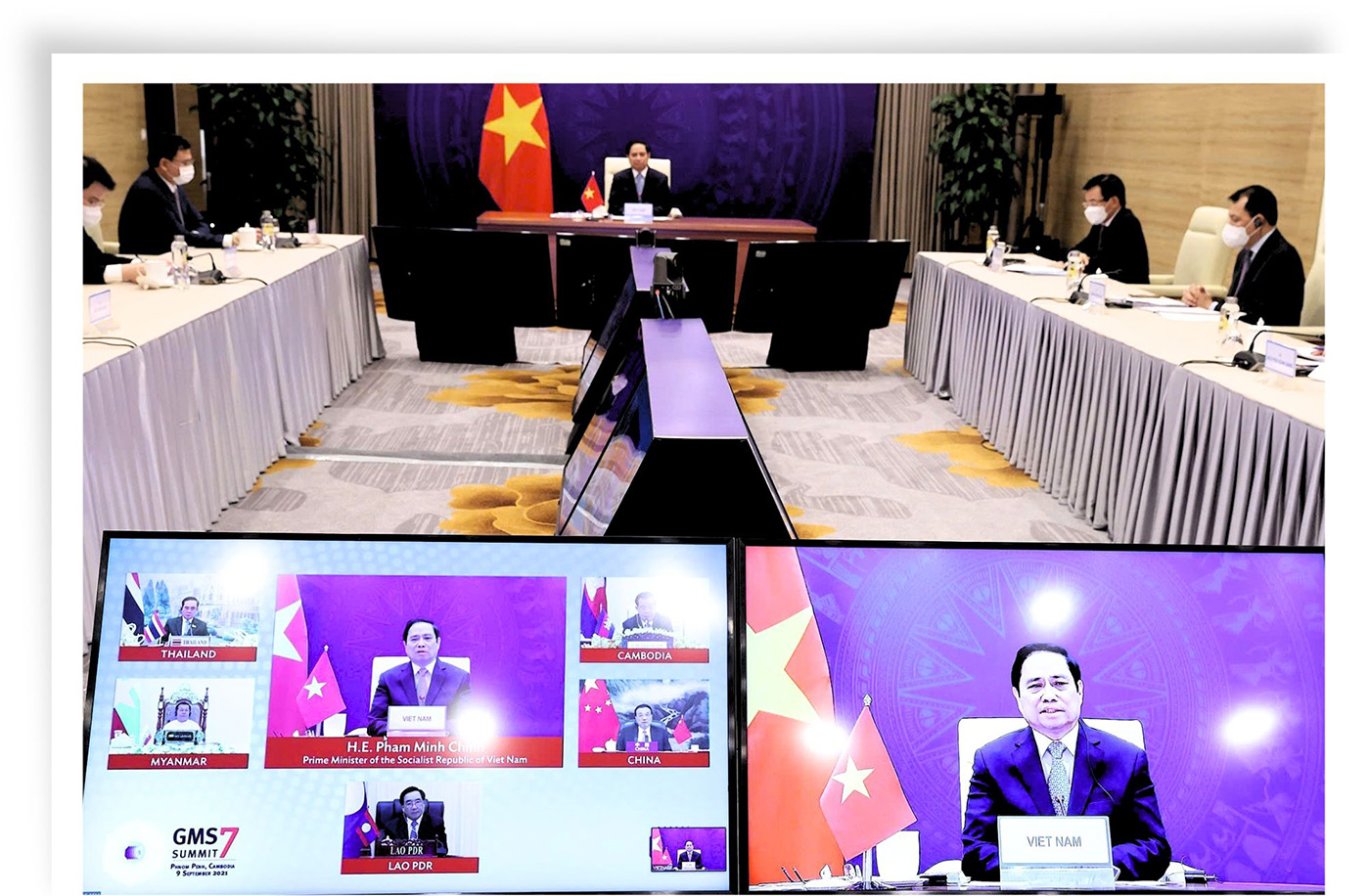
In 2018, Vietnam hosted the 6th GMS Summit for the first time on the occasion of the 25th anniversary of the establishment of the GMS cooperation mechanism. As the host, Vietnam successfully organized the Summit with the adoption of two major orientation documents for the GMS, the Hanoi Action Plan 2018 - 2022 and the Regional Investment Framework; officially launching the process of building a long-term vision for the GMS after 2022; and for the first time, the GMS Business Summit was held with the participation of more than 2,000 delegates from within and outside the region.
Vietnam has been fully and actively participating in cooperation activities; contributing ideas to develop plans and strategies in the sub-region; participating in and effectively implementing the GMS Transport Strategy 2030; receiving 2 projects "Developing tourism infrastructure to support comprehensive growth in the Greater Mekong Sub-region" phase 1 from 2014 to 2019 and phase 2 from 2019 to 2024. In the Regional Investment Framework, phase 2021-2025, Vietnam mobilized more than 100 projects worth about 10.47 billion USD (out of a total of 535 projects worth 133 billion USD).
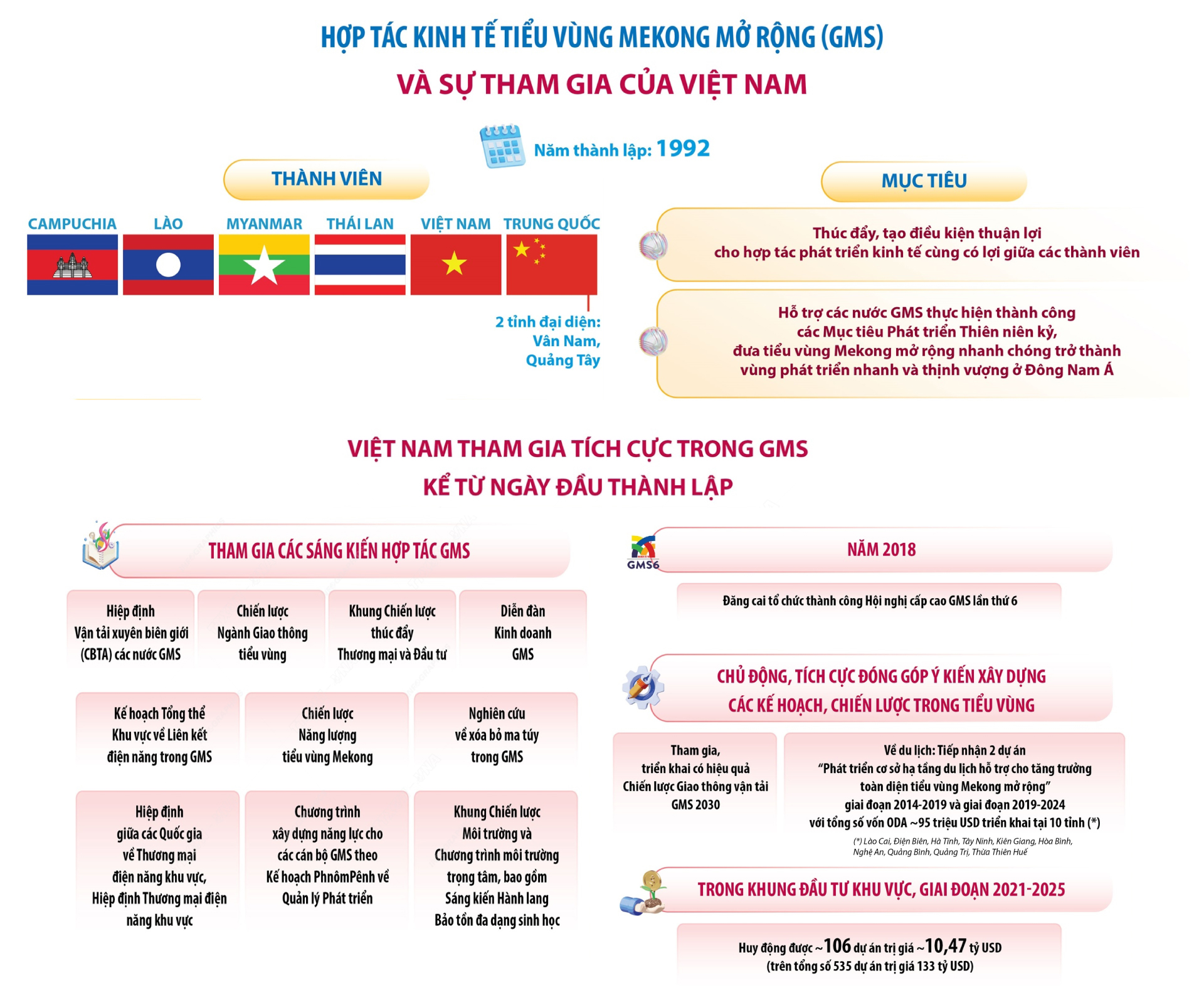
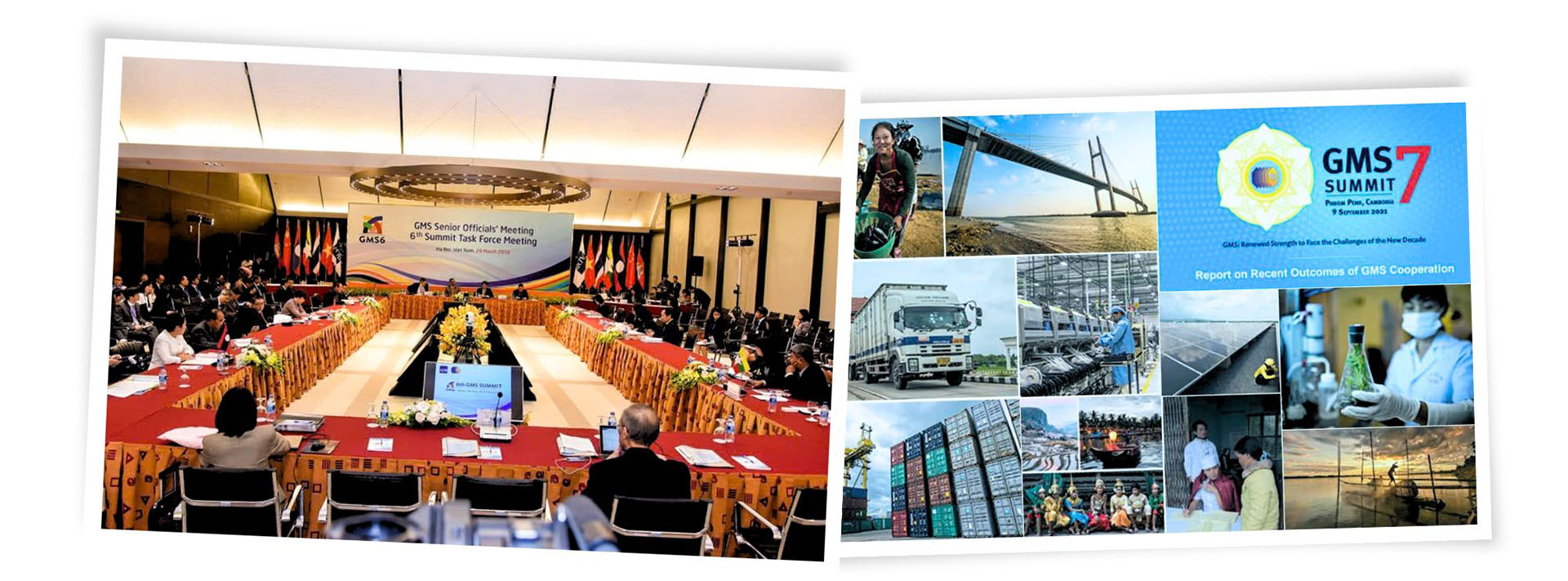
ACMECS was established in November 2003 at the Bagan Summit, previously known as the Economic Cooperation Strategy (ECS). This is an economic cooperation framework comprising five countries: Vietnam, Cambodia, Laos, Myanmar and Thailand.
ACMECS cooperation covers eight areas: trade-investment, agriculture, industry-energy, transport, tourism, human resource development, health and environment. The principle of ACMECS cooperation is to focus on promoting economic growth, social progress and cultural development in the region through joint efforts in the spirit of equality and cooperation.

Vietnam officially joined ACMECS at the first ACMECS Ministerial Meeting in Thailand in November 2004. As the eastern gateway of the Mekong Sub-region, Vietnam is an indispensable factor in the economic corridors in the region. Vietnam has proactively proposed and implemented many new ideas, contributed to the drafting of important documents, formed and promoted initiatives, and supported development for member countries, including human resource development and infrastructure construction. Vietnam also plays a coordinating role in a number of specialized cooperation areas and has implemented many practical activities to promote comprehensive cooperation among the five countries.
Vietnam has successfully hosted the ACMECS Summit twice (November 2008 and October 2016). Vietnam is currently carrying out domestic procedures to soon announce its financial contribution plan to the ACMECS Development Fund. Thereby, promoting the early establishment of the ACMECS Development Fund, ensuring the effective implementation of projects in the ACMECS Master Plan, bringing practical benefits to the people and economies of ACMECS as well as the sustainable development of the sub-region.
The first CLMV Summit was held on the occasion of the 10th ASEAN Summit in Vientiane (Laos) in November 2004. With the Vientiane Declaration on Strengthening Cooperation and Economic Integration among CLMV Countries, the Summit affirmed the determination of CLMV countries to strengthen economic cooperation and integration within the frameworks of Mekong Sub-region, ASEAN and regional cooperation; calling on countries and international organizations to increase support for the four countries to narrow the development gap.
The formation of CLMV cooperation is one of the efforts to meet the objective requirements of the integration of the Mekong Sub-region and ASEAN. CLMV cooperation is an open cooperation mechanism, on the one hand promoting the advantages and existing cooperation potential of CLMV countries, on the other hand being a channel to call for support from other ASEAN countries and development partners for CLMV countries. Moreover, CLMV cooperation is also a forum for CLMV countries to coordinate in the ASEAN economic integration process.
Since joining CLMV cooperation, Vietnam has clearly demonstrated its leading role, actively promoting cooperation between countries for the common development of the region. In particular, in 2018, as the Chair of CLMV cooperation, Vietnam successfully organized the 8th CLMV Summit with the Leaders of the countries agreeing to assign the Economic Ministers to closely coordinate with the ASEAN Secretariat and the consulting unit to develop the CLMV Development Framework and report to the Senior Leaders for approval. This is a strategic document on economic cooperation between CLMV countries, the first to be developed since the establishment of the CLMV cooperation mechanism.
2024 marks the 20th anniversary of the establishment of CLMV cooperation. CLMV cooperation has made important contributions to the development of the four countries and the Mekong Sub-region, especially in promoting sustainable development, narrowing the development gap and building the ASEAN Community; contributing to helping CLMV economies grow at a high rate in the region (forecast to reach 4.6% in 2024), trade with the world reaching over 769 billion USD, accounting for 21.8% of ASEAN's total trade value with the world.
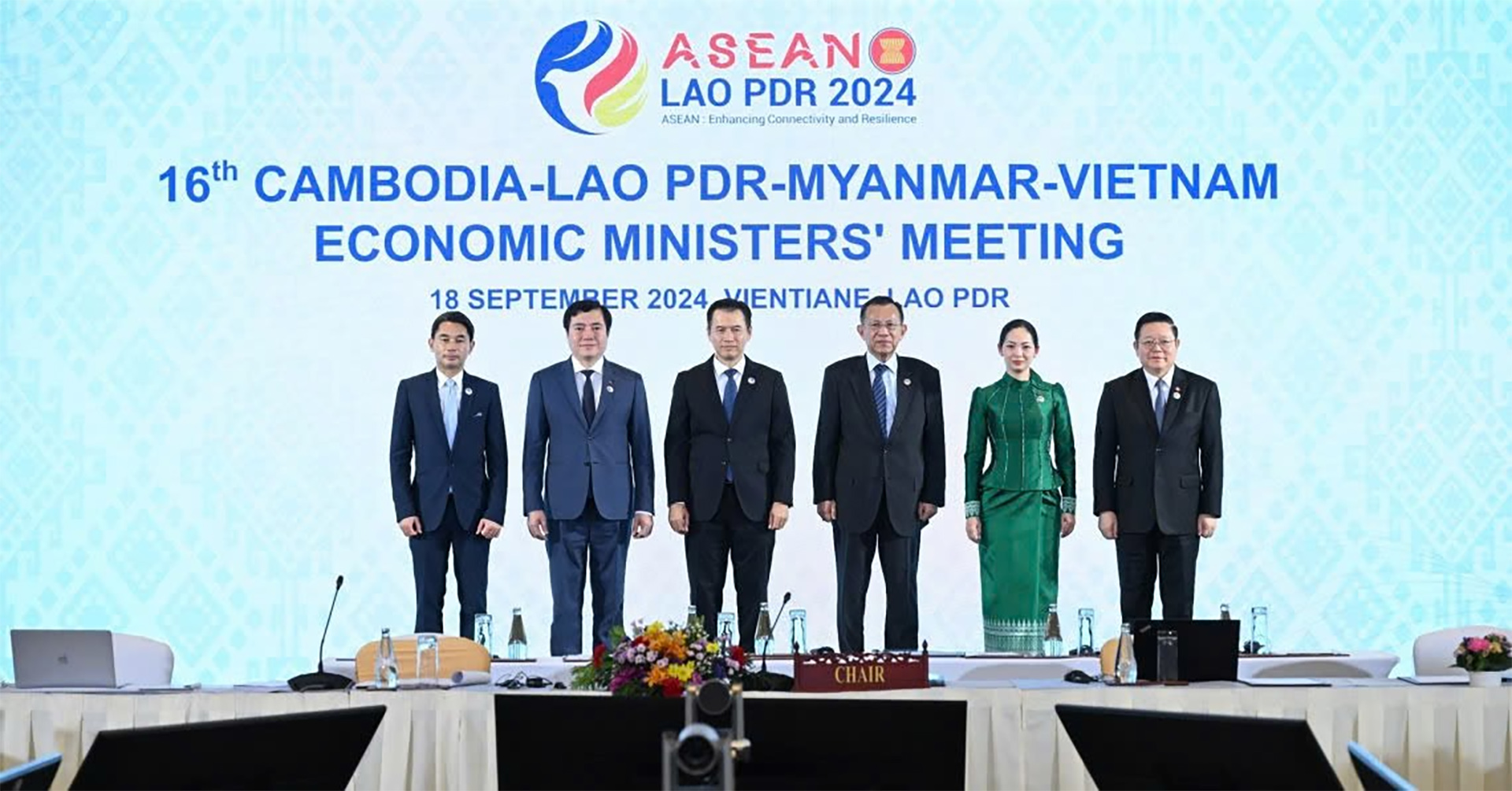
It is clear that GMS, ACMECS and CLMV are mechanisms that aim to promote and facilitate mutually beneficial economic development cooperation among countries; support countries to successfully implement the Millennium Development Goals (MDGs); rapidly expand the Mekong Subregion into a fast-growing and prosperous region; exploit and promote comparative advantages among regions and member countries, enhance competitiveness, and narrow the development gap. Up to now, GMS, ACMECS and CLMV cooperation has been assessed to have achieved many important results, contributing to promoting the socio-economic development of each country, as well as strengthening friendly relations, peace and stability in the region.
In the context of the world economy undergoing unprecedented, comprehensive transformation; the trend of green transformation, digital transformation, sustainable and inclusive development is more urgent than ever; the Mekong Sub-region needs to have "breakthrough" steps to meet new development requirements.
At the 8th GMS Summit, the 10th ACMECS Summit, and the 11th CLMV Summit, in addition to traditional issues such as economics, trade and investment facilitation, hard and soft infrastructure connectivity, and sustainable management and use of transboundary water resources, Prime Minister Pham Minh Chinh and leaders will focus on discussing new issues, notably innovation. “New areas of cooperation are a strong driving force that positions the GMS, ACMECS, and CLMV mechanisms not only as traditional core mechanisms in sub-regional cooperation; but also as pioneering mechanisms that bring the Mekong Sub-region to a new level in the regional and international value chain,” Deputy Minister of Foreign Affairs Pham Thanh Binh emphasized.
Source: https://baolangson.vn/tao-dot-pha-dap-ung-yeu-cau-phat-trien-o-tieu-vung-me-cong-5027492.html


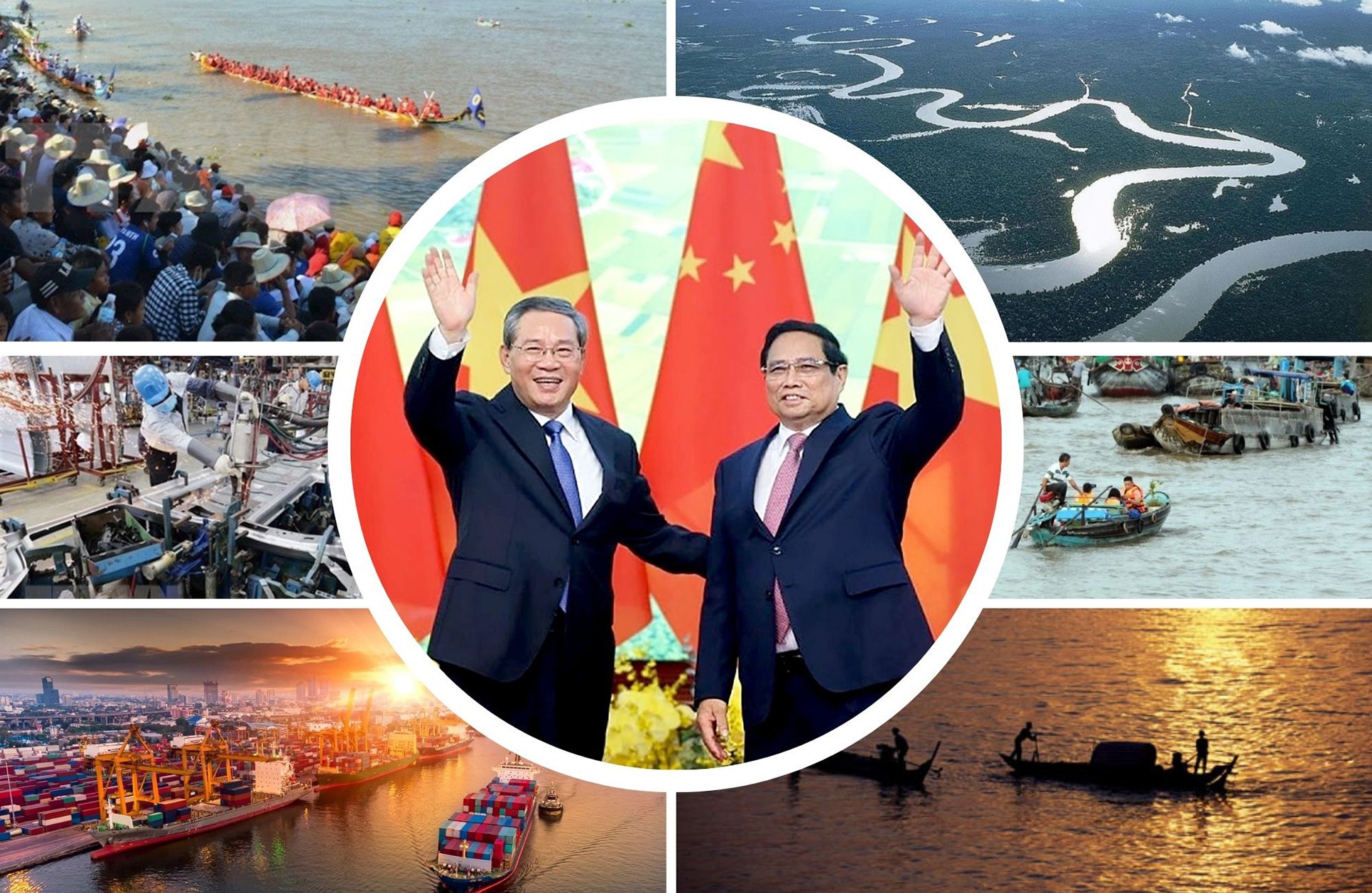

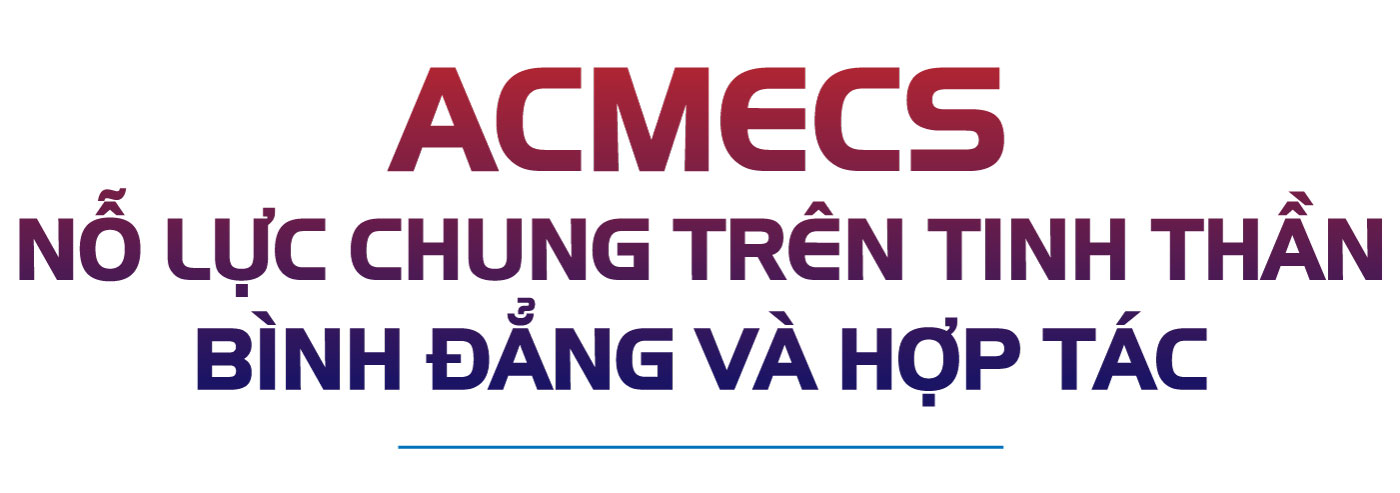
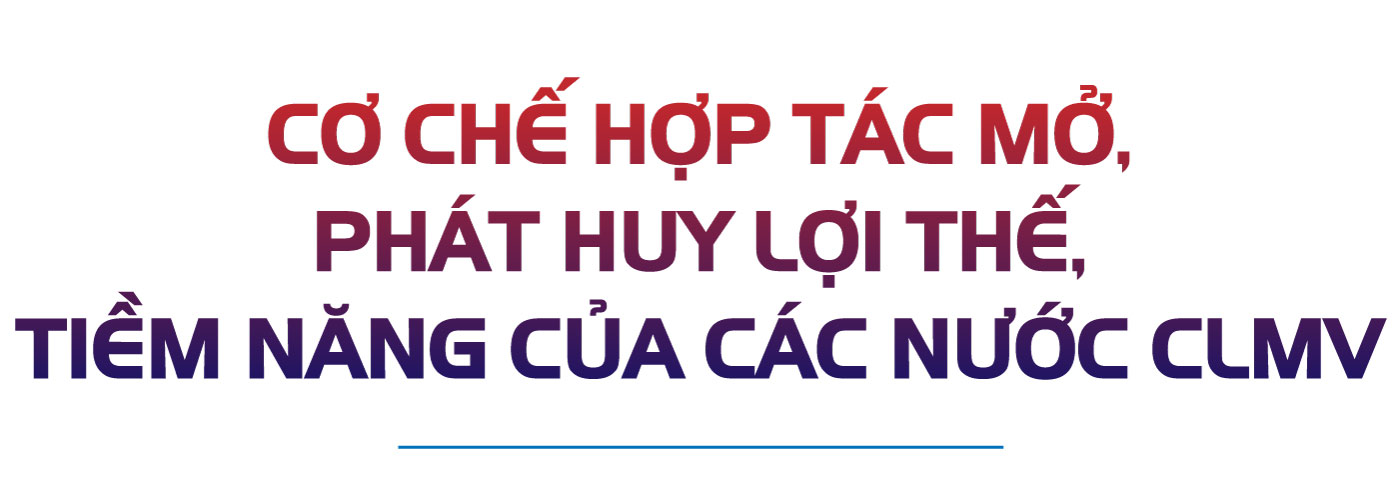












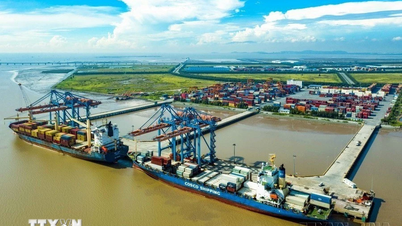



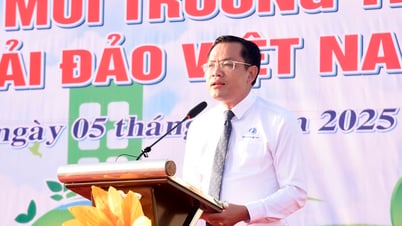
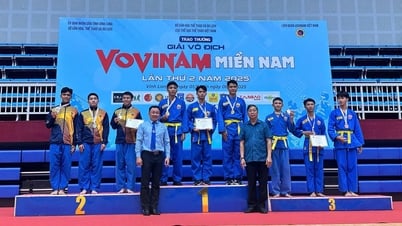
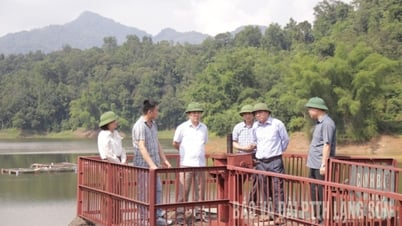

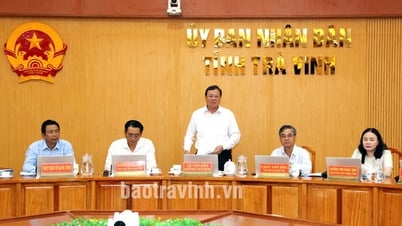

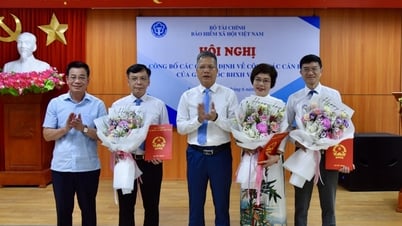





















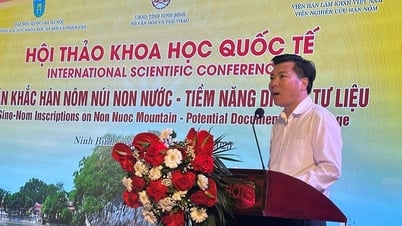



















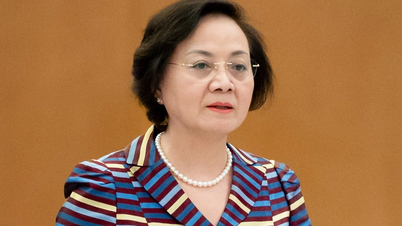

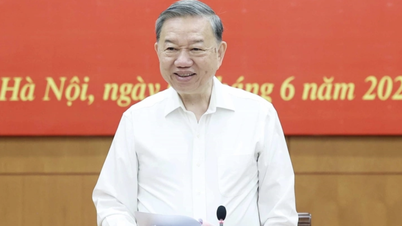




























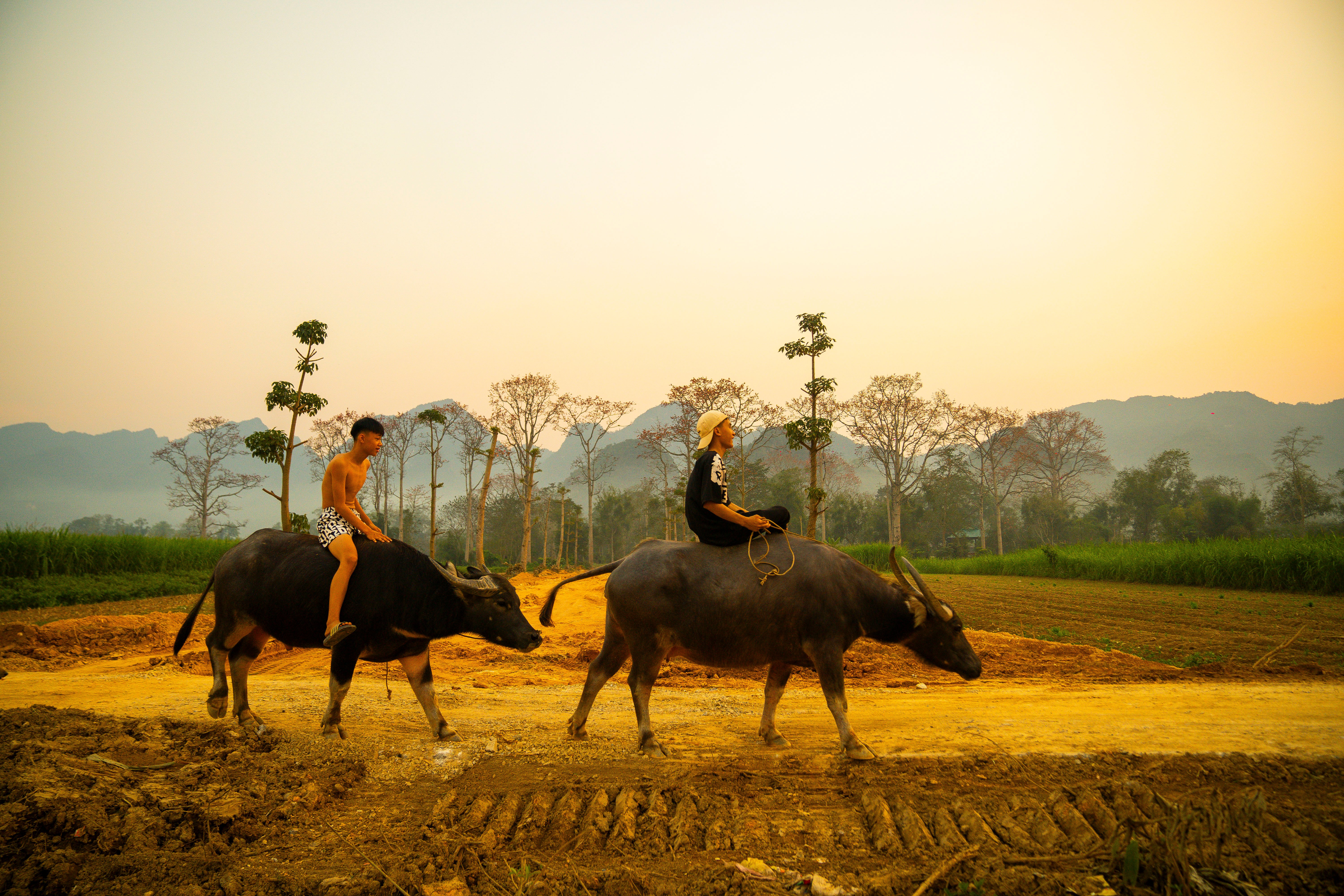
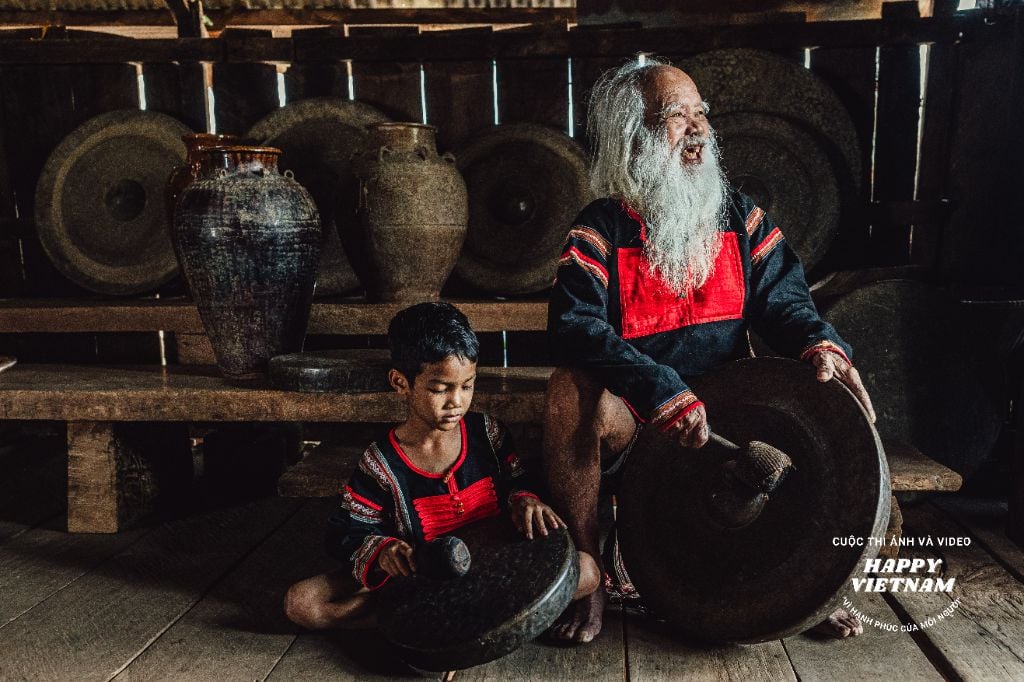

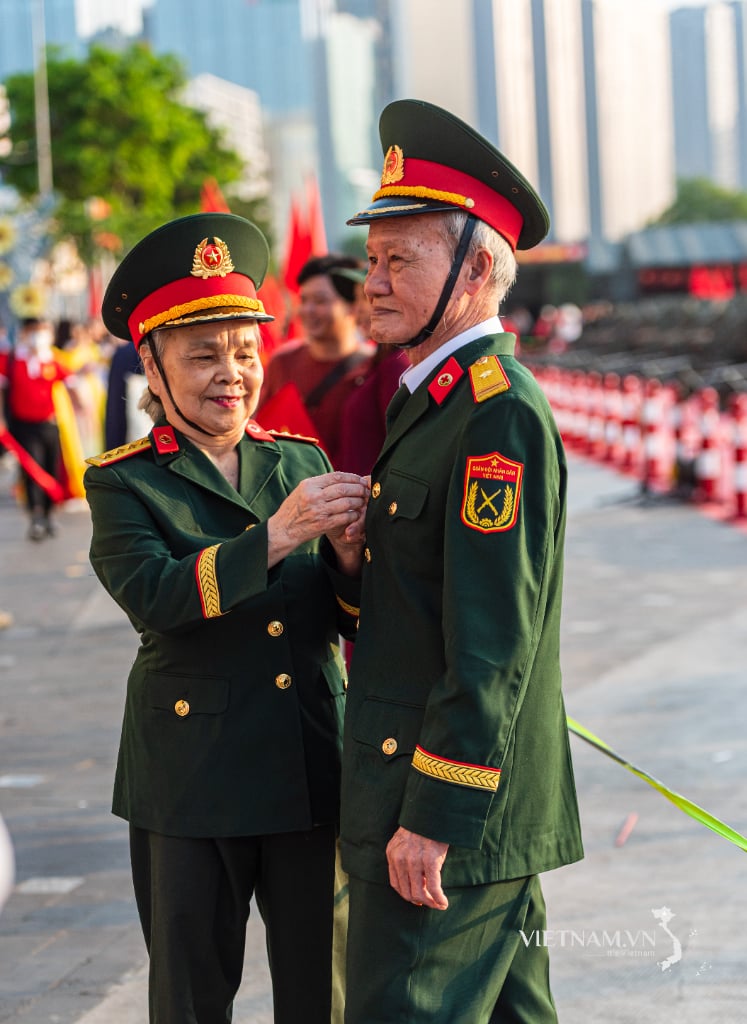
Comment (0)